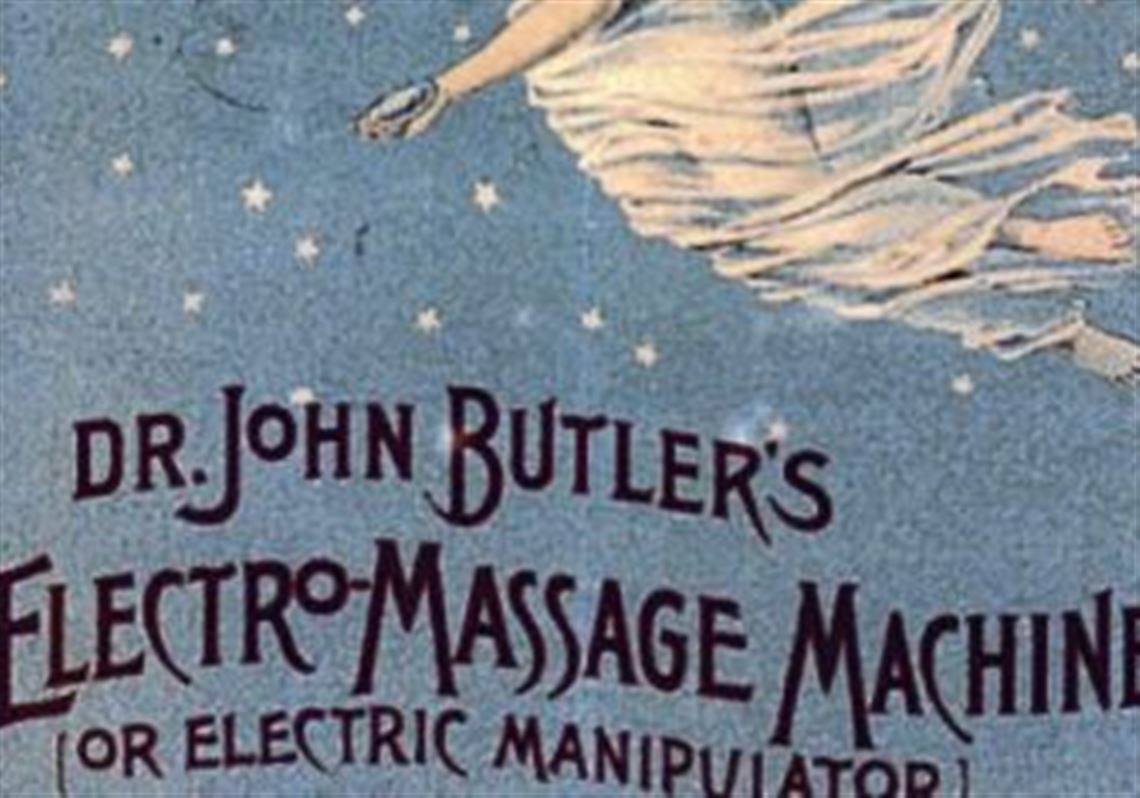In Texas, it's legal to sell guns and Viagra.
But until a state law was struck down in 2008, Texans could not own more than five sex toys and it was a felony to sell them.
Joanne Webb learned this lesson the hard way.
A mother of three and a Sunday school teacher, Mrs. Webb decided to earn extra cash as a sales associate for Passion Parties, a company that hawks sex toys using the business model Tupperware employed to sell food containers.
In 2004, Ms. Webb was busted for selling vibrators to two undercover cops and summoned to jail. She faced a year in prison and a $4,000 fine. The charges eventually were dropped but not before her husband, a home builder, suffered a nervous breakdown and the Webbs declared bankruptcy. The couple later divorced.
This Texas-sized soap opera is recounted in a documentary about the history of the vibrator called "Passion & Power: The Technology of Orgasm." The 74-minute film will be screened Wednesday at Pittsburgh Filmmakers in Oakland to benefit In Sisterhood, a local multimedia project documenting the women's movement in Pittsburgh from 1967 through 1989. It's also a celebration of Women's History Month.
A star of the documentary is Rachel Maines, who earned her doctorate in history at Carnegie Mellon University in 1983. In 1999, she published "The Technology of Orgasm: Hysteria, the Vibrator and Women's Sexual Satisfaction." The book has been translated into French, Spanish, Italian and Japanese.
Now a visiting scientist at Cornell University, Ms. Maines is highly articulate and knowledgeable. Some of her analysis is laced with enough academic jargon to fill a corset; the film's producers could have cut these comments and lost nothing. Her observations are balanced by Reno, a performance artist who supplies outrageously funny, candid commentary.
Starting in 450 B.C. and through the end of the 1800s, Ms. Maines tells us, doctors diagnosed sexually dissatisfied women as being "hysterical." (One of the symptoms was reading French novels while wearing corsets.)
After Mortimer Granville invented the electric mechanical vibrator in 1883, many Victorian women paid $2 to $3 for "therapeutic massage" at doctors' offices. Ms. Maines asserts that the phrase "therapeutic massage" provided a "social camouflage" for satisfying women's sexual appetites.
"Some doctors performed this as a service ... lending new meaning to the phrase 'cash cow,' " Ms. Maines says.
Then, major American companies such as Sears, Roebuck and Co., General Electric and Hamilton Beach came out with their own versions of the vibrator, and women began buying them directly, cutting doctors out of the equation.
This documentary shows how attitudes toward female sexuality have evolved and reminds viewers how the reproductive rights revolution forever changed women's lives. There's an excellent chance that it will make you laugh out loud and show you the power of sisterhood.
Tickets are $25 in advance and $30 at the door. To purchase tickets, go to www.insisterhood.info. Ladies United for the Preservation of Endangered Cocktails will host a reception with drinks and hors d'oeuvres at 6:30 p.m. in the lobby of the Melwood Screening Room at Pittsburgh Filmmakers, 477 Melwood Ave. The film will be shown after the reception.
First Published: March 18, 2011, 8:00 a.m.


















